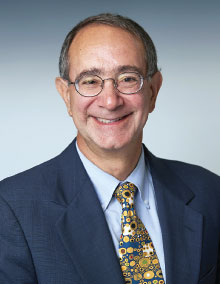Regulations Need to Be Loosened to Stem Twin Tides of OUD, Infectious Disease
Abstract
A report from the National Academies of Sciences, Engineering, and Medicine outlines sweeping recommendations for addressing barriers to treatment.

Some psychiatrists concerned with patient privacy may balk at a National Academies recommendation to amend 42 CFR Part 2, says Robert Feder, M.D.
The opioid crisis has prompted a rise in infectious diseases such as HIV and hepatitis C, but workforce shortages, stigma, and financial and policy barriers keep treatment for opioid use disorder (OUD) and treatment for infectious disease from being integrated, according to a report from the National Academies of Sciences, Engineering, and Medicine. In “Opportunities to Improve Opioid Use Disorder and Infectious Disease Services: Integrating Responses to a Dual Epidemic,” the Academies recommend state and federal policy actions that would increase access to opioid use disorder services and, in turn, stem the tide of infectious diseases.
The recommendations, which are both far reaching and specific, include the following:
Removing prior authorization requirements by insurance companies for all approved medications for OUD.
Amending the Drug Addiction Treatment Act of 2000 (DATA Act) to allow eligible health care professionals to prescribe buprenorphine without undergoing the mandatory training.
Increasing resources provided by the Health Resources and Services Administration (HRSA) to encourage psychiatrists and mental health professionals to work in rural areas where OUD and outbreaks of infectious diseases are likely to co-occur.
Widening the scope of HRSA’s Substance Abuse Treatment Telehealth Network Grant Program to support telemedicine approaches.
Revisiting and potentially clarifying 42 CFR Part 2 to determine the risks and benefits of allowing substance use disorder treatment records to be shared for treatment purposes rather than solely for payment, health care operations, audits, and evaluations (Psychiatric News.)
Revising state billing policies to allow for more than one service in a given day, allow multiple providers to bill on the same day for the same patient, and allow the same provider to bill for different diagnoses.
Several of the recommendations are likely to be met with widespread support among psychiatrists, while others may not garner consensus, said Robert Feder, M.D., a psychiatrist in Manchester, N.H., and a member of APA’s Council on Addiction Psychiatry.
“Removing prior authorizations would absolutely be supported. Many psychiatrists would like them removed for all psychiatric medications, not just those for medication treatment [of OUD],” Feder said. “But there may be mixed feelings on telemedicine because you lose the ability to conduct urine testing” to check whether the patient is taking buprenorphine as prescribed and screen for illicit substance use.
According to Feder, psychiatrists might find themselves divided on a recommendation that could lead to more effective, integrated treatment regarding 42 CFR Part 2, a regulation that prohibits unauthorized disclosures of patient records for treatment of substance use disorders except in limited circumstances. The report notes that there is confusion regarding when this regulation applies and how it interacts with the Health Insurance Portability and Accountability Act of 1996 (HIPAA), which is generally thought to offer less stringent privacy protection than 42 CFR Part 2. To address a lack of data sharing regarding substance use, the Academies recommend that the Substance Abuse and Mental Health Services Administration “either further align 42 CFR Part 2 with [HIPAA] or redefine which service delivery programs fall under 42 CFR Part 2.”
Feder noted that some psychiatrists may balk at this recommendation because they may be concerned about jeopardizing patient privacy and about patients facing stigma and other repercussions such as losing their jobs if it becomes known that they have OUD.
“Others, including myself, feel there should be free exchange of information among clinicians so that treatment can be continuous,” Feder said.
The report and recommendations were compiled by the National Academies’ Committee on Examination of the Integration of Opioid and Infectious Disease Prevention Efforts in Select Programs at the request of the Department of Health and Human Services’ Office of Infectious Disease and HIV/AIDS Policy. ■
“Opportunities to Improve Opioid Use Disorder and Infectious Disease Services: Integrating Responses to a Dual Epidemic” is posted here.



